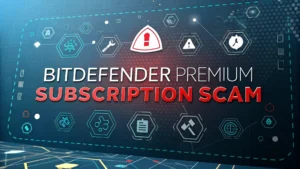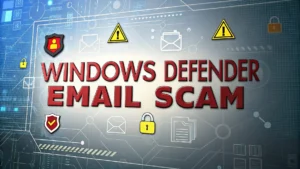The Korn Ferry Consulting Scam involves the circulation of fake recruitment emails, posing as legitimate job offers from the renowned consulting firm. These deceptive emails target unsuspecting job seekers, luring them with the promise of exciting career opportunities.
However, it is crucial to be aware of the signs of a fake recruitment email and to understand the common tactics employed by scammers.
This introduction will provide valuable insights into how to verify the legitimacy of such emails, steps to take if you have received a fake email, and how to report the scam to Korn Ferry Consulting.
By staying informed and vigilant, individuals can protect themselves from falling victim to this scam and similar fraudulent activities in the future.
Table of Contents
Signs of a Fake Recruitment Email
Table of Contents
One of the key indicators of a fake recruitment email is the presence of grammatical errors and spelling mistakes. These red flags in job offers can be a sign of email phishing techniques used by scammers to deceive unsuspecting job seekers.
Common Tactics Used in the Scam
Several common tactics are employed in the Korn Ferry Consulting scam, targeting unsuspecting job seekers with a fake recruitment email. It’s important to be aware of these tactics to protect yourself from falling victim to such scams. Some warning signs to look out for include:
- Poor grammar and spelling mistakes in the email
- Requests for personal information or payment upfront
- Unprofessional email addresses or domain names
- Pressure to respond quickly or make immediate decisions
- Suspicious or vague job descriptions or requirements
How to Verify the Legitimacy of the Email
To determine the authenticity of the email, job seekers can employ a few straightforward methods.
One of the first steps is to verify the legitimacy of the email by checking the sender’s email domain. This can be done by carefully examining the email address and comparing it to the official email addresses used by the company in question.
Additionally, conducting a quick internet search to see if others have reported similar scam emails can provide valuable insights.
Steps to Take If You Have Received a Fake Email
If you receive a fake email, it is crucial to take immediate action to protect your personal information and prevent any potential harm. Here are the steps you should take if you have received a fake email:
- Do not click on any links or download any attachments.
- Verify the sender’s email address and look for any red flags.
- Check the email for poor grammar or spelling mistakes.
- Contact the legitimate company or organization to verify the email’s authenticity.
- Report the scam to the appropriate authorities, such as the Federal Trade Commission or local law enforcement.
Reporting the Scam to Korn Ferry Consulting
When it comes to reporting the scam to Korn Ferry Consulting, it is important to consider the most effective approach.
How does Korn Ferry handle such reports? Do they have a designated department or process in place to address these issues promptly and efficiently?
Understanding their response and how they tackle scams will provide valuable insight into their commitment to protecting their clients and candidates.
Reporting Scam Effectively
Effective reporting of the Korn Ferry Consulting scam involves submitting a detailed fraud report to the company. To ensure efficient communication and accurate information, it is essential to include the following in the report:
- Date and time of the scam incident
- Description of the scam email or communication
- Any attachments or links received
- Personal information shared, if any
- Any additional details or observations that may help with the investigation
Korn Ferry’s Response
Prompt reporting is crucial for Korn Ferry Consulting to effectively respond to instances of the scam. When notified about the fake recruitment email, Korn Ferry took immediate action to investigate the matter and mitigate any potential harm.
They launched an internal investigation to identify the source of the scam and implemented measures to prevent future occurrences. Additionally, Korn Ferry issued an official apology to affected individuals, emphasizing their commitment to maintaining the integrity of their recruitment process.
Protecting Yourself From Future Scams
As we continue to navigate the world of online job searching, it is crucial to be vigilant and protect ourselves from falling victim to future scams.
One way to do this is by practicing email verification techniques, such as checking for suspicious email addresses and verifying the legitimacy of the sender.
Additionally, it is important to rely on trustworthy job sources and platforms that have a reputation for screening job postings.
Lastly, recognizing red flags, such as requests for personal information or payment upfront, can help us avoid potential scams and protect our personal and financial well-being.
Email Verification Tips
To protect yourself from future scams, it is crucial to implement proper email verification techniques.
Here are five tips to enhance your email security and phishing awareness:
- Be cautious of unsolicited emails and avoid clicking on suspicious links or attachments.
- Verify the sender’s email address and check for any signs of spoofing or impersonation.
- Enable two-factor authentication for your email accounts to add an extra layer of security.
- Regularly update your email client and antivirus software to ensure they have the latest security patches.
- Educate yourself about common phishing techniques and learn how to spot red flags in phishing emails.
Trustworthy Job Sources
To protect oneself from future scams, it is important to be aware of trustworthy job sources that can help in avoiding potential fraudulent activities.
One such source is reliable job boards, which have a reputation for verifying the legitimacy of job postings. These platforms ensure that employers are verified and maintain strict guidelines to protect job seekers from scams.
Additionally, reputable recruitment agencies can also be trusted sources as they thoroughly vet employers and job opportunities before recommending them to candidates.
Recognizing Red Flags
One crucial step in protecting yourself from future scams is to be vigilant and recognize red flags when it comes to job opportunities.
But how can you spot these warning signs? Here are 5 key indicators to help you stay safe online:
- Unprofessional email addresses or communication
- Requests for personal information or payment upfront
- Poor grammar and spelling errors in job postings or emails
- Job offers that seem too good to be true
- Lack of company information or online presence





























